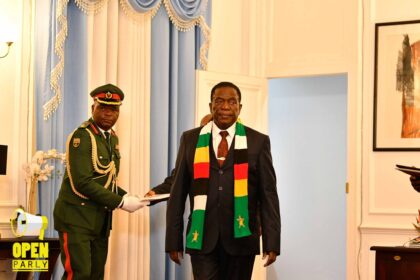The violence reported during the recent public hearings on Zimbabwe’s Private Voluntary Organisations (PVO) Amendment Bill is deeply troubling, especially for a nation that has repeatedly relied on aid to combat poverty and natural disasters.
NGOs have been pivotal in saving lives during droughts, cyclones, and other climate-related catastrophes.
The PVO Bill aims to regulate the operations of private voluntary organisations, including NGOs and civil society organisations (CSOs).
If enacted, it would grant the government extensive powers to interfere in the governance and activities of these groups.
The bill allows the government to designate any PVO as “high risk” or “vulnerable” to terrorism abuse, thereby giving it the authority to revoke their registration or replace their leadership.
Additionally, the bill imposes severe penalties, including imprisonment, for administrative offences related to PVO registration.
The bill has faced substantial criticism from local and international groups for potentially threatening the right to freedom of association in Zimbabwe.
This is not the first time the PVO Bill has been subject to public hearings.
On February 1, 2023, the Senate passed the bill before sending it to President Emmerson Mnangagwa, who returned it to Parliament, citing concerns that certain clauses violated the Constitution.
Despite the President’s reservations, the Zanu PF party’s stance remains unchanged. Public hearing participants aligned with Zanu PF continue to support the bill, arguing it is necessary to curb NGOs and CSOs, which they accuse of pushing a Western agenda.
In contrast, opposition members argue that the bill infringes on the right to association.
The public hearings have become battlegrounds for clashes between Zanu PF and opposition supporters, politicizing the bill and forcing parliamentarians to debate and vote along party lines, despite the potential harm it could cause to Zimbabwe’s welfare.
In Masvingo and Harare, public hearings were disrupted by alleged Zanu PF youths attacking known opposition members.
This violence reveals how politicians manipulate people to oppose something crucial for their survival in the absence of government support.
NGOs and humanitarian aid agencies have rescued countless people since independence, especially during disasters like Cyclone Eline, Cyclone Idai, and the droughts of 1992, 2002, and 2008.
It is short-sighted for Zanu PF to seek to shut these organisations out when they have consistently partnered with the government during crises.
When the President declared a state of national disaster, he rallied humanitarian aid agencies to assist the government in saving people from hunger.
If the PVO Bill becomes law, it will severely impact ordinary people who will struggle to put food on the table.
The Zimbabwean government is grappling with its own economic challenges and may not be able to cover the entire country.
NGOs, which the bill seeks to shut out, are essential for the survival of many citizens.



